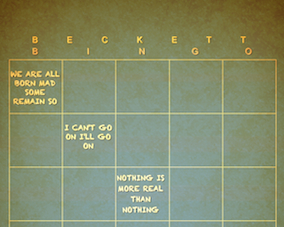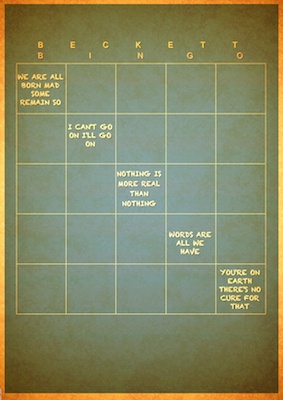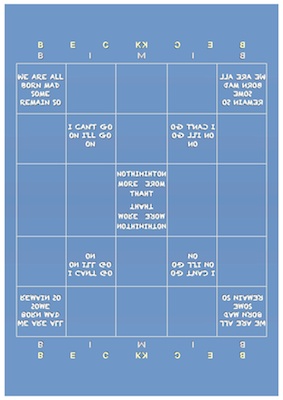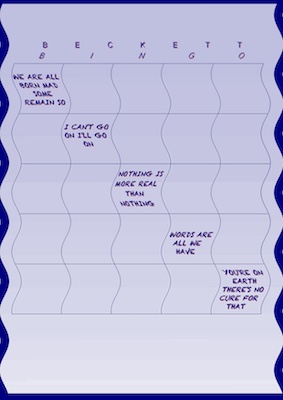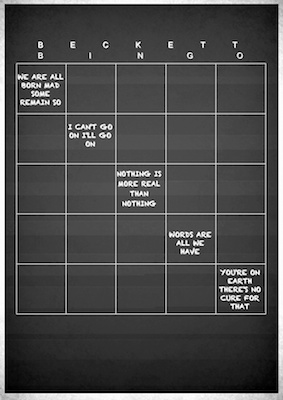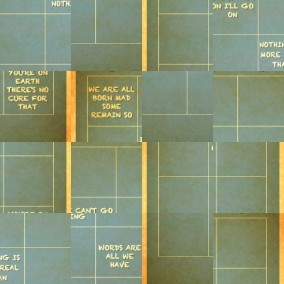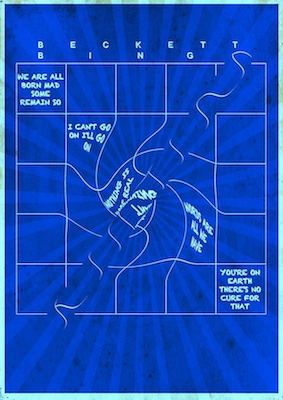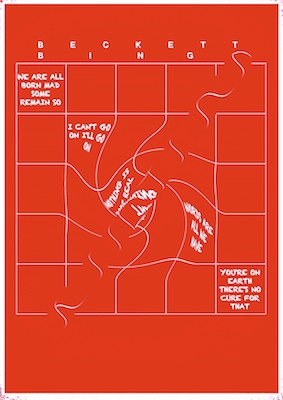Hi C___,
I can see you are trying to be a friend, in your way, and that is good. Thank you for your efforts of friendliness and love. On that point, one of the most important aspects of building friendships is for each party to communicate preferences and boundaries.
On the points of theology, we simply don’t agree, but more than that, we are so very far apart that discussions regarding theology would not only be futile but also quite possibly offensive both ways. I do not want to feed that. I will try to address a few areas in the spirit of building communications and a shared sense of respect and boundaries. On the topic of my rape as political platform, I will get there, but first…
SO WE CAN PUT AWAY ANY ASSUMPTION THAT I NEED TO BE EDUCATED ON THE BIBLE
All caps not meant as yelling, simply a title to the section. I grew up in a mixed Nazarene/Baptist family. Church every Sunday and in between and all that. Bible Camp, which I enjoyed mostly. I’ve read and studied the Bible and have sat in more Bible classes than I’d like to admit. I do believe the Bible to be an artful, for its time, set of parables. When I was a child, I believed the parables as fact and creation. I now believe the Bible provides a standard of social expectations that in many ways, not all ways, served and still serves the best needs of society. Unfortunately, some people do not self-discipline. Some people respond to the threat of hellfire and the carrot of heaven. This distresses me, the need of threat and carrot to help some people understand and lead a life of secular morality and recognize when they are not. The place of hellfire in our culture is a barometer of our time and culture. It is a mirror of man, not a basis for creation. I hope, one day, the threats are no longer needed or not needed as much, but I am a realist.
Point being, you can rest assured that my theological study is full and intact for me and mine. I do not require reeducation by a white, male, right wing, conservative Christian. I don’t say that to be mean. I’m simply pointing out the widespread differences between us. I have spiritual models and relationships I turn to for discourse, as you have your own. The two of us trying to save each other isn’t a friendship. So let’s not risk losing a friendship over it, as we all can use as many friendships as we are able to make. If you’d like to talk about art and literature, please, let’s do that.
May I redirect for a moment? I recently visited the Hirsshorn Museum. Took the kids. It was truly amazing. Weiwei’s exhibit was life-changing. What I like in particular is the multiple media incorporated into the single exhibit: photographs of industrial progress and buildings, a sculpture of bundled wood torn down from Buddhist temples, a light display as big as a room, video footage of Beijing traffic… A clean open space, where the viewer can simply ponder the sensory data around him or her. Regardless of spiritual, political, educational… background, the viewer can lose him or herself in the artistic experience and apply the sensoria and media in individual and meaningful ways. Something of a meditation. That is why art is my religion. You and I could sit side by side on a bench and feel as one in experience and place while having completely different connections to the art around us. No one would need to tell us what is good or wrong in the world or in us for us to perceive these individually and safely within our minds, sharing only what we felt comfortable sharing, while still having the company of friendship between us in that moment. Art as religion. Art on a bench. Religion on a bench. Big open spaces. Quiet reflection. Sound familiar? If we one day are able to do this, brother, I will not mind if you pray silently beside me. I will meditate silently and be happy for you that you are praying silently beside me. We can do our respective “thing” side by side and feel good and complete, each of us in our own spaces, shared.
Back to it… Essentially, as I see it, we are coming from very different backgrounds, fields of study, mindsets… We share a few early childhood theologies and high school experiences that I treasure. You have always been an absolute sweetheart. Someone I considered to be a good person, trustworthy, well-meaning, smart and wanting to help people. I guess I didn’t realize how much we were friends then. Now, I see that more. We also got into a little trouble, all of us, what you would call sin, beer parties and such, what I don’t see as sin so much as natural symptoms of growing up and this makes me think of my children. I hope my children make good choices, and in some ways, better choices than I have made, as all parents do. I would be very happy if they followed my paths, too. In some ways they already seem to be doing that, but not in all ways. I am thankful they are independents. I hope and work, every day, to be worthy of them, and I let them guide me. My children are the closest to a thing called God. Children, their innocence and clarity, make us all into our better selves if we have the courage to let it happen.
I’LL NOT GO INTO EVOLUTION
I don’t think those discussions are worth our time and would likely frustrate us both without the opportunity to really truly learn anything of use. I will assume you’ve heard and read the same data and research as I have.
ON “BELIEVING”
I’ve heard the religious rhetoric, as most agnostics/atheists have, and have truly considered for myself what I feel to be fact and fiction. My study leads me to my viewpoints, and I am comfortable with my viewpoints both spiritually and intellectually. I wouldn’t try to convince you of my viewpoints because it would likely read as though I’m talking down to you or denigrating you for your own beliefs, which are just as important to you as mine are to me. I respect your beliefs for you. I will not try to reeducate you. I ask that you do not try to reeducate me. I will say that as an agnostic/atheist, I do not believe anything truly dies. We are all made of energy, and I think we can find similarity of viewpoint there. From a scientific standpoint, all that makes my loved ones will one day transform into other matter, and for that, I am thankful. I imagine my loved ones reconstituted after their deaths into trees, oceans, flowers, birds. This gives me peace regarding my own mortality, too. I do not need a big white man in the sky or a big red man with horns in the earth to tell me my energy is eternal, or what to do with my energy and matter, now, in this life. I honestly feel it is a man’s conceit to need heaven and hell. The inability to believe one’s self can cease to exist in its conscious form. It is egotism. And bullish. Churches of all denominations have used the heaven and hell debate for centuries in order to gather tithes, control populations, gain political power… Keep women where they want them. Don’t get me started on the Catholic church. Christians, Baptists, Nazarenes, Episcopalians… are problematic on a basic level for the same reasons.
ON MY FICTION
Yes, I absolutely understand the use of double entendre in my words. They are intentional, and I hope everyday my daughter will read these words, when she is of age, and the words of many other women writers who write gender-based satire. I hope my daughter grows to be an independent thinking woman who will see the hypocrisies of our modern world, especially regarding gender, women’s bodies, women’s rights, sexual preferences (I am assuming you believe homosexuality to be a sin against God? Some of my best friends are homosexual and this mindset is beyond upsetting. The mindset is rather scary. Awful things have been done to women and LGBT in the name of God.) Again, I won’t seek to explain the moralities and foundations of writing gender-based fiction, or what some would call feminist or postfeminist fiction, I honestly don’t know if you would want to or could understand it because of your religious vehemence. That probably comes off as rude. I don’t want to be rude. Much of the religious rhetoric wielded by conservative Christians is extremely rude to individuals such as myself, but I do not want to feed it, usually. Sometimes I do get fed up and speak my mind, as other women have. Some women apologize for it. I won’t apologize for it. Women have apologized for their bravery and dissents far too long. I could send you to some critically acclaimed works that would have you praying for weeks. But I won’t do that because I know it isn’t your thing, and I don’t feel a need to reeducate you in the name of science, art, gender, tolerance…
AND ON THE “EVIL” THAT WAS DONE
It wasn’t evil. It was a college boy. He had as much evil in him as anyone does. He lacked the discipline and morality to make better choices, and I’m sure I’m not the only girl who suffered him. I can tell you that he was a “believer.” I have worked through the pain of the experience and will continue to work through it as everyone does. We all have our pains. It’s all relative. My pain is not worse or less than another’s pain. Yes, I was raped. But it doesn’t hurt me today as much as my daughter seeing a dried up worm on the sidewalk, when she was very young, and crying because it had died. Relativity. She tried to take it inside and put it in a glass of water so to rehydrate it. Bring it back to life. She was Mary to the worm’s Jesus. I explained the worm couldn’t come back to life in the water, that it was gone. We buried it in the garden and said a few words, and I explained that the worm was now part of the Earth, the Earth was its home. I said, It is home, now, forever, and doesn’t have any worries.
You see? The lessons are everywhere. We make our own parables.
FINALLY, ON MY RAPE AS POLITICAL PLATFORM
I do personally feel a need to speak out when “leaders” of our country talk about “legitimacy” of rape, because I have a daughter and mother and female friends and a son who I want to grow up understanding that the nature of a woman’s body is not for him to determine. I, however, take offense when this issue becomes a sensationalized vehicle as driven by men or women. I can become furious when it is done in the name of God. I have a particular distaste for women who sensationalize crimes against women. They need no sensationalism.
I suppose this has turned into some sort of a self-primer. I didn’t mean for that, but now that I have it, I’ll think on this a bit more in coming years. You’ve given me a prompt for reflection, and I thank you for that. You are indeed a good friend for having given me this gift. For a writer, friendly muses are treasures. Thank you, C___. I’m so glad to have heard from you. And I love you, too, brother. Very much.
Rae
Rae Bryant’s short story collection, The Indefinite State of Imaginary Morals, released from Patasola Press, NY, in June 2011. Her stories have appeared or are soon forthcoming in StoryQuarterly, McSweeney’s Internet Tendency, BLIP Magazine, Gargoyle Magazine, and Redivider, among other publications and have been nominated for the Pen/Hemingway, Pen Emerging Writers, and Pushcart awards. She writes essays and reviews for such places as New York Journal of Books, Puerto del Sol, The Nervous Breakdown, Portland Book Review and Beatrice.com. She is the 2012 Patasola New York City Summer Writing Resident and has received fellowships from the VCCA and The Johns Hopkins University, where she earned a Masters in Writing, teaches multimedia and creative writing, and is editor in chief of the literary and arts journal, The Doctor T. J. Eckleburg Review.

